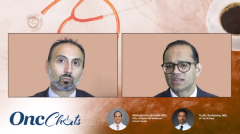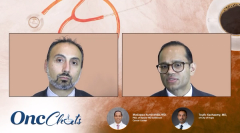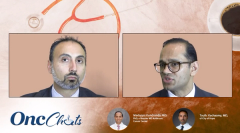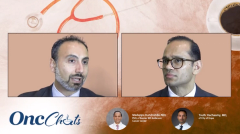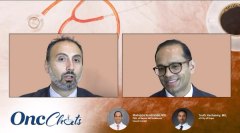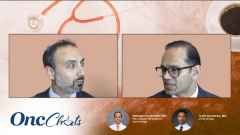
Understanding Endoscopy in the Realm of GI Cancers: Interventional Oncology
In this second episode of OncChats: Understanding Endoscopy in the Realm of GI Cancers, Madappa Kundranda, MD, PhD, and Toufic A. Kachaamy, MD, explain the evolution of minimally invasive surgery and the emergence of interventional radiology in gastrointestinal cancer.
Episodes in this series

In this second episode of OncChats: Understanding Endoscopy in the Realm of GI Cancers, Madappa Kundranda, MD, PhD, of Banner MD Anderson Cancer Center, and Toufic A. Kachaamy, MD, of City of Hope, explain the evolution of minimally invasive surgery and the emergence of interventional radiology in gastrointestinal cancer.
Kundranda: Dr Kachaamy, as an experienced interventional endoscopist, what are you seeing as a trend in procedures that help a patient with this multidisciplinary care?
Kachaamy: Excellent question. In general, with surgery, especially complex surgery, we are becoming much better in GI malignancies. Surgeries are becoming mostly minimally invasive, where patients can recover much faster and get back to either their cancer treatment or their normal life and have a faster recovery. But the trend, however, is to try to preserve the organ. What do I mean by that? The trend is to try to manage patients in a nonoperative way because GI cancer surgery often leaves patients with some long-term symptoms that significantly affect their quality of life [QOL]. For example, if we look at colorectal cancer and sphincter-sparing surgery, half of the patients 10 years after their original treatment, including surgery, will have some symptom and have problems having normal bowel movements; [this will be] significant enough to affect their QOL. If we move to esophageal cancer, for example, [it’s] the same thing. Half of [patients with] esophageal cancer after esophagectomy have some form of symptoms related to either sleeping or eating that significantly affects their QOL.
This has opened the field for a relatively new discipline called interventional oncology, which is a form of minimally invasive procedures for organ-sparing, and at the same time, managing cancer. What can you tell us as an experienced GI oncologist about this field of interventional oncology?
Kundranda: Oncology, over the past several decades, has become more complex. Forgone, are the traditional modalities of treatment, including medical oncology, surgical oncology, and radiation oncology. This can be even more evident in managing these complex gastrointestinal malignancies. Interventional oncology involves modalities of treatment including interventional endoscopy, interventional radiology, and interventional neurology, to name a few. In my opinion, with interventional endoscopy, this is an integral part of the diagnosis and management of gastrointestinal malignancies.
Check back on Wednesday for the next episode in this series.


